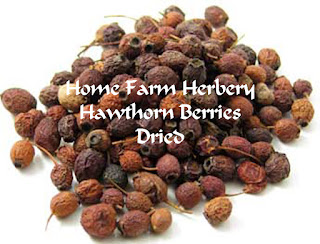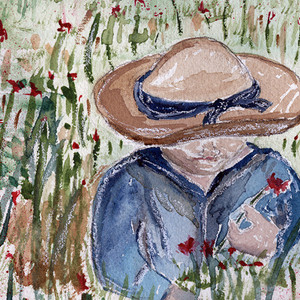30 Dec Wed 2015
A Little About Hawthorn Berries©
Hawthorn Berries (Circulatory) have been used around the world for many different purposes, including jellies and flours. They come from a small, spiny tree indigenous to the Mediterranean region.

Hawthorn is especially popular in Europe, where it is used in a number of herbal tinctures, herbal combinations and teas. The berries’ effects on the circulatory system have been researched in Europe. Certain chemical constituents in the berries seem to enhance enzyme metabolism and oxygen utilization in the heart muscle. The berries should be taken over a period of time for their full nutritional benefits to be realized. It is now gaining foothold in the USA as more and more people know about the benefits.
The whole berry is used as dried, crushed and/or powdered.

Hawthorn berries are more often used to make tinctures than teas, smoothies and punches. May also be taken encapsulated or as an extract and you can add to floral displays and potpourri to make them aromatic.

Hawthorn Berries contain vitamins C and B complex, crataegin, carotene, flavonoids and sugars. The key constituents of the hawthorn berries are extracted using a combination of grain alcohol and distilled water. Extracts are rapidly assimilated by the body and can be mixed in liquid or taken directly under the tongue.
Precautions: Taken in excess, hawthorn berry teas can cause mild diarrhea. This does not occur when the berries are used to make tinctures or are encapsulated. Diarrhea is not a side effect of the leaf and flowers. For educational purposes only and this information has not been evaluated by the Food and Drug Administration. This information is not intended to diagnose, treat, cure, or prevent any disease.
If you are making a tincture you recipe may refer to “Herb Strength Ratio” which tell you how much alcohol to use in ratio to the herb. For example< a ration of 1:4 means that 1 part herb is to be used with 4 parts alcohol.
Extracts made with FRESH plant material is 1:2 or 1 part herb to 2 parts alcohol.
Extracts made with DRIED plant material is 1:4 or 1 part herb to 4 parts alcohol.
May the Creative Force be with you.
Arlene Wright-Correll

